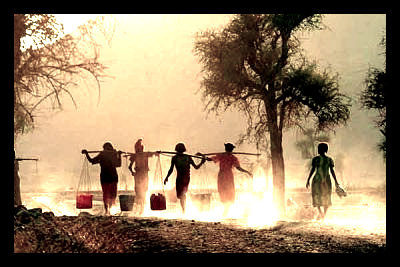The United States embassy in Ethiopia has reported of intense gunfire between two cities leaving a main road linking the capital and another town blocked.
A statement released by the embassy read: “The U.S. Embassy is aware
of reports that the main road from Addis Ababa to Jijiga has been
blocked by security forces between the cities of Babile and Harar due to
intense fighting including gunfire.”
They added that even though Ethiopian Defense Force troops were
arriving in the area, the road in question was not passable. The cause
of the clashes is not yet known.
The U.S. Embassy is
aware of reports that the main road from Addis Ababa to Jijiga has been
blocked by security forces between the cities of Babile and Harar due to
intense fighting including gunfire.
They further cautioned citizens on travel to the above mentioned
areas. “Maintain a high level of vigilance and take appropriate steps to
enhance your personal security.”
The US remains one of the few countries that have maintained their
travel advisory for Ethiopia despite the lifting of a 10-month state of
emergency imposed last October.
The U.S. State Department on December 6, 2016 warned its citizens
“of the risks of travel to Ethiopia due to the potential for civil
unrest related to sporadic and unpredictable anti-government protests
that began in November 2015.” It also spoke about how curfew rules had
hampered its activities.
A statement released by the embassy read: “The U.S. Embassy is aware of reports that the main road from Addis Ababa to Jijiga has been blocked by security forces between the cities of Babile and Harar due to intense fighting including gunfire.”
They added that even though Ethiopian Defense Force troops were arriving in the area, the road in question was not passable. The cause of the clashes is not yet known.
They further cautioned citizens on travel to the above mentioned areas. “Maintain a high level of vigilance and take appropriate steps to enhance your personal security.”The U.S. Embassy is aware of reports that the main road from Addis Ababa to Jijiga has been blocked by security forces between the cities of Babile and Harar due to intense fighting including gunfire.
The US remains one of the few countries that have maintained their travel advisory for Ethiopia despite the lifting of a 10-month state of emergency imposed last October.
The U.S. State Department on December 6, 2016 warned its citizens “of the risks of travel to Ethiopia due to the potential for civil unrest related to sporadic and unpredictable anti-government protests that began in November 2015.” It also spoke about how curfew rules had hampered its activities.
Ethiopia state of emergency affecting work of US embassy
Between December and the latest security message, the US embassy has issued four alerts to its citizens.
- 5th January: Alert with respect to explosions in Bahir Dar,
capital of Oromia region – one of the epicenters of anti-government
protests.
- 11th January: Report of an explosion on January 10, 2017 in the Gondaon Intasole Hotel located in Gondar in Amhara State.
- 13th April: Alert during the easter festivities, “U.S. citizens to
be aware of their surroundings around the upcoming Easter holiday,” the
alert said.
- 27th April: Alert on reports of a series of grenade explosions in the city of Gondar.
One of the towns where the clashes have been reported, Babille, is
in eastern Ethiopia. It is believed to have been named after one of the
12 major clans of the Oromo people, it is located in the Oromia Region,
30 kilometers east of Harar.
Harar, also located in eastern Ethiopia is known as the ‘Mecca of
Africa’. It’s surrounded by a centuries-old defensive wall that has
several large gates. The city is known for its mazelike alleys and
traditional houses decorated inside with flat hanging baskets. A holy
Islamic city, Harar has many mosques, including the Grand Jami Mosque
with its tall white minarets. source http://www.africanews.com/2017/08/10/intense-fighting-in-ethiopia-as-key-road-is-blocked-us-warns-citizens/
- 5th January: Alert with respect to explosions in Bahir Dar, capital of Oromia region – one of the epicenters of anti-government protests.
- 11th January: Report of an explosion on January 10, 2017 in the Gondaon Intasole Hotel located in Gondar in Amhara State.
- 13th April: Alert during the easter festivities, “U.S. citizens to be aware of their surroundings around the upcoming Easter holiday,” the alert said.
- 27th April: Alert on reports of a series of grenade explosions in the city of Gondar.
Harar, also located in eastern Ethiopia is known as the ‘Mecca of Africa’. It’s surrounded by a centuries-old defensive wall that has several large gates. The city is known for its mazelike alleys and traditional houses decorated inside with flat hanging baskets. A holy Islamic city, Harar has many mosques, including the Grand Jami Mosque with its tall white minarets. source http://www.africanews.com/2017/08/10/intense-fighting-in-ethiopia-as-key-road-is-blocked-us-warns-citizens/



![Image of Somali President, Mohamed Abdullahi Farmajo on 8 February 2017 [AMISOM Public Information/Flickr]](https://i0.wp.com/www.middleeastmonitor.com/wp-content/uploads/2017/06/2017_2_8-Somali-President-Mohamed-Abdullahi-FarmajoMohamed_Abdullahi_Farmajo_landscape_crop.jpg?resize=1200%2C800&quality=75&strip=all&ssl=1)
